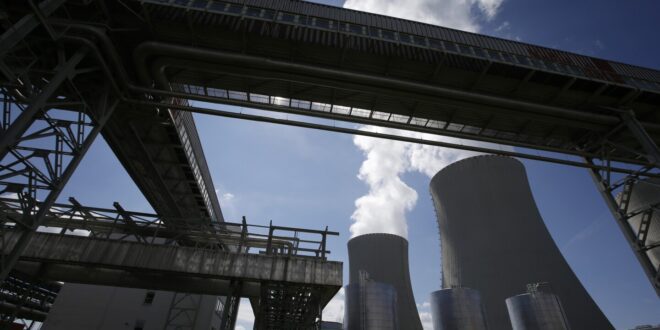The U.S. and its European allies are currently importing large quantities of nuclear fuel and compounds from Russia, which is generating significant revenue for Moscow and supporting its nuclear arsenal development efforts. This situation has raised concerns among experts and elected officials who argue that these imports are contributing to Russia’s war-making capabilities and hindering efforts to curtail its actions in Ukraine. While these imports are legal and not subject to sanctions, they leave the U.S. and its allies vulnerable to energy shortages if Russia decides to cut off supplies. This reliance on Russian nuclear products, primarily used for civilian reactors, is expected to become even more significant as these nations aim to increase their production of clean electricity to combat climate change. Many countries that generate nuclear energy import radioactive materials from Russia’s state-owned energy corporation, Rosatom, and its subsidiaries. Rosatom is a leading global player in uranium enrichment and ranks third in uranium production and fuel fabrication. The company’s exports of nuclear energy-related goods and materials amounted to approximately $2.2 billion in 2022. However, experts believe that this figure is likely higher since it is challenging to track such exports accurately. The revenue generated by Rosatom’s civilian business is crucial as it funds the design and production of Russia’s atomic weapons. Ukrainian officials have called for sanctions on Rosatom to cut off a significant source of funding for Russia and to hold Putin accountable for the invasion of Ukraine. However, it would be challenging for the U.S. and some European countries to completely halt imports of Russian nuclear products due to their reliance on Russian fuel. In the U.S., nuclear energy accounts for about 20% of electricity production, and Russian nuclear fuel and product imports totaled $871 million in 2022. Russia’s role in supplying the U.S. with nuclear fuel can be traced back to a nonproliferation deal in 1993, which resulted in the importation of low-cost weapons-grade uranium. Europe faces a similar dilemma with 19 Russian-designed reactors dependent on Russian nuclear fuel. France, in particular, has a history of relying on Russian-enriched uranium. Some countries, like Sweden and Finland, have taken steps to reduce reliance on Russian fuel by refusing to purchase it or canceling agreements with Rosatom. Countries such as the Czech Republic, Slovakia, and Bulgaria have also sought alternative suppliers. However, Hungary and France remain uncertain about their approach to this issue. At present, France has not indicated a willingness to cut off Russian uranium supplies, while Hungary is entirely dependent on Moscow for its nuclear fuel and plans to expand its nuclear power plant with Russian reactors. Although diversification of fuel supplies may eventually lead to Europe abandoning Rosatom, it is unclear how Hungary and France will address this challenge.

 Mind Uncharted Explore. Discover. Learn.
Mind Uncharted Explore. Discover. Learn.


